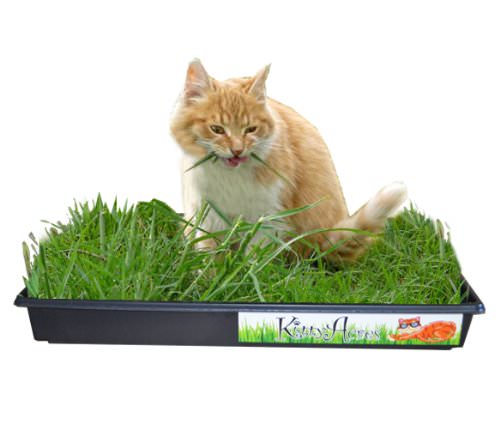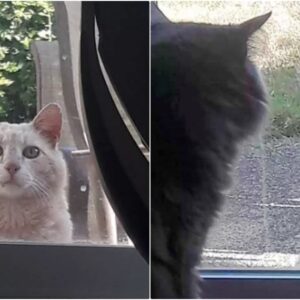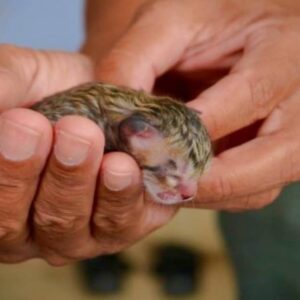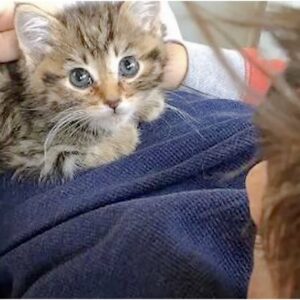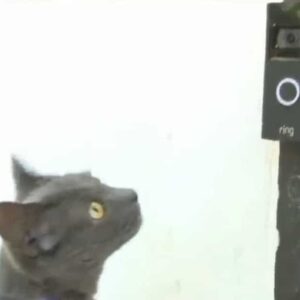Cats are very intentional and calculated creatures. Most of the things they do serve a purpose and help them live healthier and happier lives. It’s important to remember that when cats do something “naughty”, they aren’t trying to spite us, they are simply acting in ways that are in line with their natural instincts. Once we understand the instinct behind a cat’s less-than-desirable behavior it’s easier to redirect it into a more positive one.
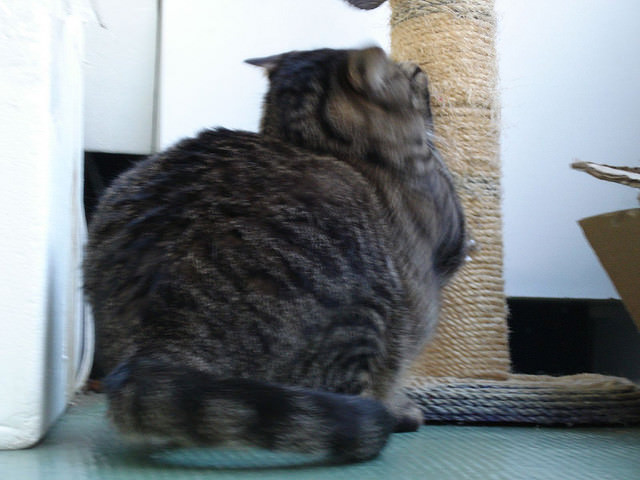
Image Source: Fabienne D. via Flickr.com
1. Scratching
It can be frustrating when a cat scratches things that shouldn’t be scratched, whether it’s the side of a couch or the carpet. If a cat keeps scratching inappropriate objects it can get quite expensive, potentially even costing you a security deposit!
You may see it as a destructive war on your property, but it’s actually an important part of your cat’s overall health. She scratches to keep her claws fresh and sharp, to stretch and flex her body, and to mark an object with pheromones from the glands in her paws.
Redirect her inappropriate scratching by making sure you have enough scratching posts in your home, and that they are the right kind. There are so many different types of scratchers: stand-up ones, flat ones, curved ones, cardboard, sisal, and catnip-infused. It’s hard to tell what kind your cat will like until you try a few, but you may be able to get some hints based on how or what she’s scratching. If she’s standing on her hind legs to scratch the side of the couch, she’d probably prefer a stand-up post that can help her stretch her body. If she is scratching the carpet, she may enjoy a flat one that she can really dig her claws into.
Image Source: KittyAcres via Amazon.com
2. Plant Eating
If you have houseplants, I’ll bet your cat has tried to eat them. There are a couple of reasons why those plants are alluring to her. First, cats simply love things that dangle and sway. Viney plants can mimic your cat’s favorite wand toy (if it wiggles when touched, it must be for playing, right?) Even non-viney potted plants may bring out your cat’s natural hunter instincts if swayed by a gentle breeze. The second reason is that your cat instinctually knows that the fiber in your houseplants will help her feel better if her stomach is upset– either by acting as a laxative or making her vomit.
Plant eating isn’t just annoying, it can be dangerous (or even fatal) to your cat if she’s eating house plants that are toxic. To make sure she’s getting the extra fiber when she needs it, trade out your cat-accessible plants with fresh catnip or cat grass. Just make sure it’s organic so your kitty isn’t ingesting pesticides.
The ASPCA has compiled great lists of plants that are toxic and non-toxic to cats.
3. Knocking Stuff Over
You can thank your cat’s natural hunter instincts for knocking everything off of your shelves and tables (hopefully, by now, you’ve learned to not keep fragile things in accessible areas). Initially, your cat pokes at objects to make sure they aren’t alive. She’s hoping the remote control will spring to life, scurry away, and send her on a fun chase (perhaps ending in a snack). Of course, cats are smart and it won’t take long for her to remember that the remote is not, in fact, a mouse. If she continues to push the remote off the coffee table it’s likely just because she has realized it’s a great way to get your attention.
A less destructive way to respect her hunter instincts is to add more interactive playtime to your daily routine. She’ll love it when you play with her using a laser pointer or wand toy. If you’re too busy to give her the play she needs, add some interactive toys to your home. Keeping her prey instincts stimulated is key to keeping her mind and body strong.
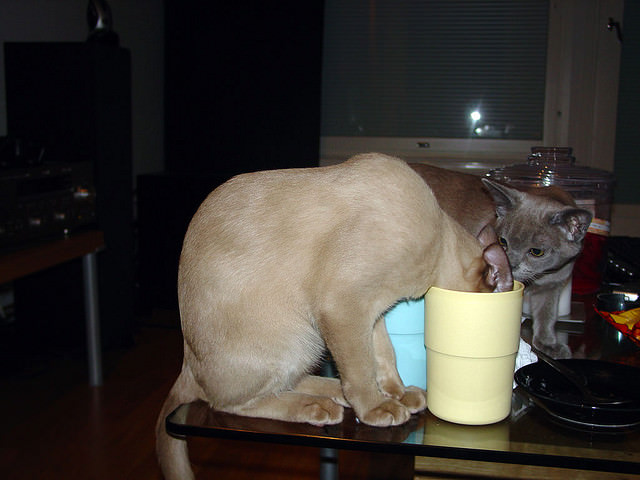
Image Source: denAsuncioner via Flickr.com
4. Drinking Water From Your Cup
Your cat has an incredibly strong sense of smell. In fact, her sense of smell is 40 times better than your own! In the wild, a cat would never drink from a pool of water that she has reason to believe may be contaminated. Drinking tainted water could make her sick and leave her vulnerable to predators. Since your domestic still holds strong to her wildcat instincts, she may avoid drinking water that isn’t fresh and clean. She still needs to stay hydrated, though, and what’s safer than the cup her trusty human has been drinking out of? Freshness is the same reason cats love to drink from dripping faucets– running water is usually safer than stagnant.
Dehydration is dangerous for cats, and your cat can become dehydrated quickly if she’s not drinking enough water. You can coax your cat away from dipping her paws in your water by adding a cat fountain to your home. This will keep her water bowl fresh and moving.
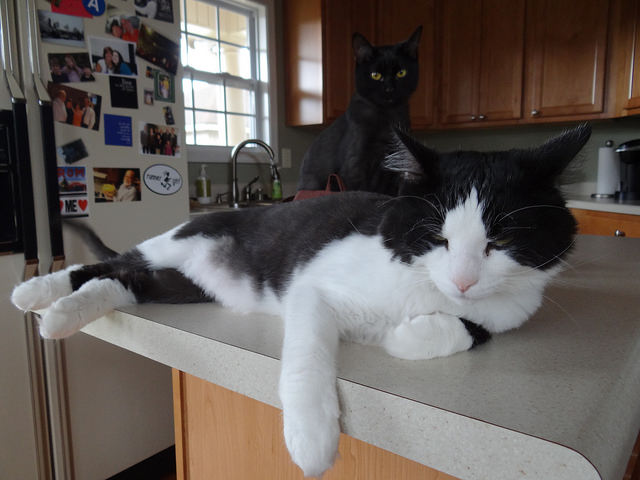
Image Source: Shannon McGee via Flickr.com
5. Jumping Onto The Kitchen Counters
In their natural wild habitat, cats are both predators and prey. Finding high places to perch helps in both ways– from the safety of a tree limb, a wild cat can stay out of the reach of predators while also keeping an eye on critters below that make a tasty dinner. Your cat’s desire to watch her world from above and search for prey is strong, even though you feed her dinner out of a can every night.
To keep her off the counters, make sure she has access to plenty of elevated areas of her own in the form of cat trees, window perches, or cleared-off shelves. These are generally the most popular if placed near windows where cats can watch birds flutter around outside.
